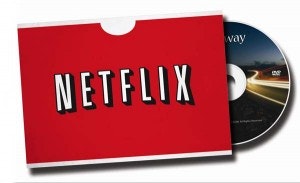Netflix, Inc. (NASDAQ:NFLX) stock hit yet another 52-week high today, boosted by encouraging words in recent days from a former skeptic. The all-time high of $304.79 that it hit two frenzied summers ago — seemingly unattainable after the stock began its fiery crash later that year — is now just a 25% pop away.

Can it get there?
Kase Capital managing partner Whitney Tilson thinks Netflix could head higher. The money manager obviously didn’t always see things that way. He was vocally bearish on the company a few years ago, to the point where Hastings publicly called him out.
Hastings was persuasive. Tilson covered his short position early in 2011. He covered too late. He also bought in too soon, as Netflix, Inc. (NASDAQ:NFLX) shares peaked five months after Tilson’s turn.
However, it’s been a redemptive road for Tilson, Hastings, and Netflix bulls since the stock bottomed out below $53 this past summer. It has more than quadrupled in value since then.
Tilson’s argument that the shares are still a deal is flawed.
“They’re trading at $400 per subscriber in a world of $1,000 per sub,” he told Yahoo! Finance’s Breakout on Monday, but is it really fair to compare Netflix, Inc. (NASDAQ:NFLX) with wireless carriers and cable providers that milk far more out of the average subscriber?
The counter here is that Netflix has clear advantages over Comcast and its peers. Netflix, Inc. (NASDAQ:NFLX) doesn’t have to carry anything. Customers may object when a popular show or movie goes offline, but it’s not the uproar that cable customers would create if ESPN or AMC walked. It’s not the outrage that smartphone owners would be fired up with if connectivity coverage took a hit. In that sense, Netflix is a lot like Sirius XM Radio Inc (NASDAQ:SIRI), in that both companies are free to cherry-pick the content that makes financial sense. They’re premium-entertainment broadcasters, but they can be so on their terms.
So valuing Netflix through dividing its enterprise value by the number of subscribers isn’t fair, but bears also can’t ignore the advantages Netflix has over other entertainment providers.
Bears may also want to steer clear of arguing that Netflix, Inc. (NASDAQ:NFLX) is expensive based on earnings multiples when profitability is held back by steep losses overseas.
This is a different Netflix these days. The Netflix that peaked two years ago was bid higher on its ability to push up average revenue per user, a lot like the cable companies are being viewed these days. The Netflix that’s rallying now is being pushed higher by an explosion in subscriber growth and one of the more deceptive moats on the planet. If you think anybody can launch a Netflix killer, you may have missed the memo about how much it would cost to build up a Netflix-esque catalog. You may be missing how studios will be at the mercy of Netflix as the only destination to generate material streaming licensing revenue and an audience.
Netflix is expensive. Netflix is cheap. This is the kind of disparity that will continue to make Netflix stock a volatile investment that nobody understands but everybody thinks they do.
The article Can Netflix Stock Hit $304.79 Again? originally appeared on Fool.com is written by Rick Munarriz.
Longtime Fool contributor Rick Munarriz owns shares of Netflix. The Motley Fool recommends and owns shares of Netflix.
Copyright © 1995 – 2013 The Motley Fool, LLC. All rights reserved. The Motley Fool has a disclosure policy.
